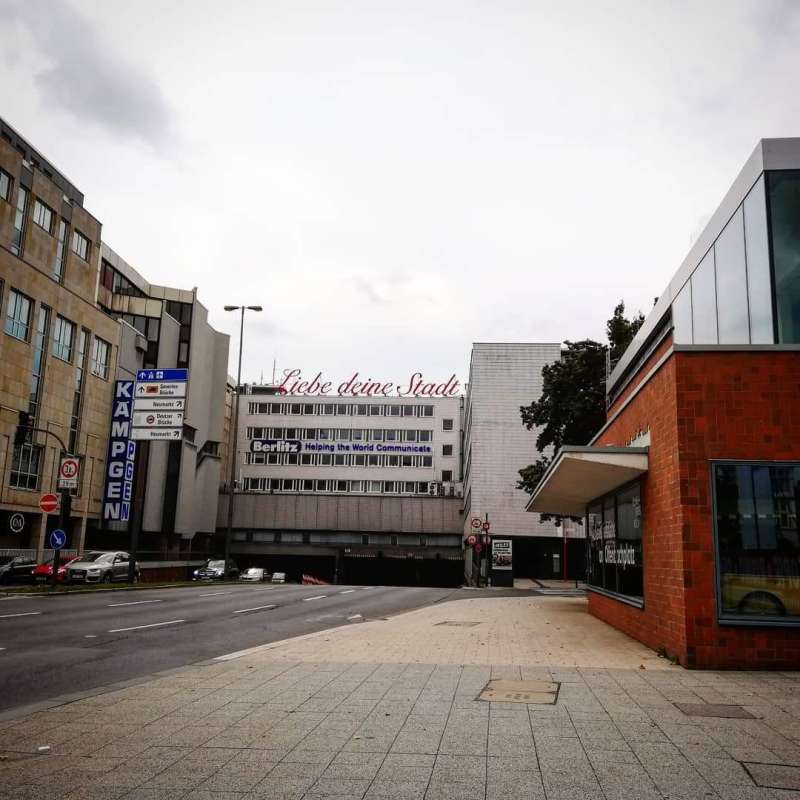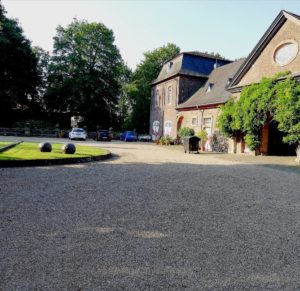News
7 October 2019 / Grants and Awards
Love your city, but don’t forget to travel

Alessandra Grossi, PhD candidate at the University of Warwick and member of the NRN Committee, writes:
Thanks to the financial support of the Society for Theatre Research, I was able to attend Summer School in Cologne, from the 26th August to the 6th September 2019. The trip has proved to be invaluably enriching on both a professional and personal level. Therefore, I would like to share my experience.
The Summer Institute Cologne is a prestigious international summer school for graduate students at the Theaterwissenschaftliche Sammlung, one of the largest theatre collections in Europe. For its seventh edition, two parallel seminars were organised, centred respectively on Theatre Historiography and on Comics, Caricatures and Cartoons. The former of the two sessions – in which I participated – was led by Professor Tracy C. Davis (Northwestern University) and Professor Peter Marx (University of Cologne). As co-editors of the forthcoming Routledge Handbook of Theatre and Performance Historiography, they shared the draft version of the articles that will be included in this book to create the unique syllabus of our seminar.

The first week of the summer school was entirely devoted to the discussion of the readings: each student had to illustrate one or more articles, trying to summarise the main historiographical intervention made by each author, and to ask some thought-provoking questions to facilitate the discussion. During the second week, which was more geared towards the practical application of historiographical insights, the participants worked on posters encapsulating individual research projects that were then presented in turns.
In general, the seminars proved to be intellectually challenging. Sitting around a table, both students and professors engaged in long, theoretical discussions around fundamental questions in the field of Theatre and Performance Historiography (e. g. what is Theatre/Performance?; what counts as evidence/archive?; to what extent are Theatre/Performance manifestations legible?). Since my research is centred on nineteenth-century British theatre, I found it useful to collectively rethink the notion of archival evidence and to problematise the interrelatedness of theatre history with cultural, social or political history. However, more prominently, the seminar discussions allowed me to acknowledge the biases and limitations affecting historical research: the researcher’s position in both place and time inevitably influences every kind of historical analysis, in terms of access to both sources and meanings.
From a personal point of view, the summer school allowed me to network with young scholars from all over the world. The seminar’s timetable envisaged some student-led activities, during which we had the chance to share the issues we face as young academics. No matter how distant our cultural background was, we all seemed to struggle, for example, with the uncertainty of our future, the managing of our time and the complexity of our projects. Furthermore, the interaction between participants was cleverly encouraged by the attendance to social activities such as dinners, concerts, theatres shows and trips, that we discussed both formally with our professors and informally among peers.
The Society for Theatre Research covered most of my travel expenses. It is precisely with the metaphor of travelling that I would like to close this blog post: I believe that it is important to love our own cities – and, metaphorically, our universities, our colleagues and our fields of work – yet, at the same time, I would encourage everyone to not forget to travel. If we get out of our comfort zone and face new intellectual challenges, like that posed by the Summer School, not only will we develop new skills as young academics, but we will also discover that we are part of a global and dynamic research community. I am incredibly grateful to STR that has made my ‘travel’ possible!
Alessandra was the recipient of a Small Conference Grant, available to full-time students over 18. You can apply for one of these at any time, unlike the Research Awards themselves.
Click here for more information.